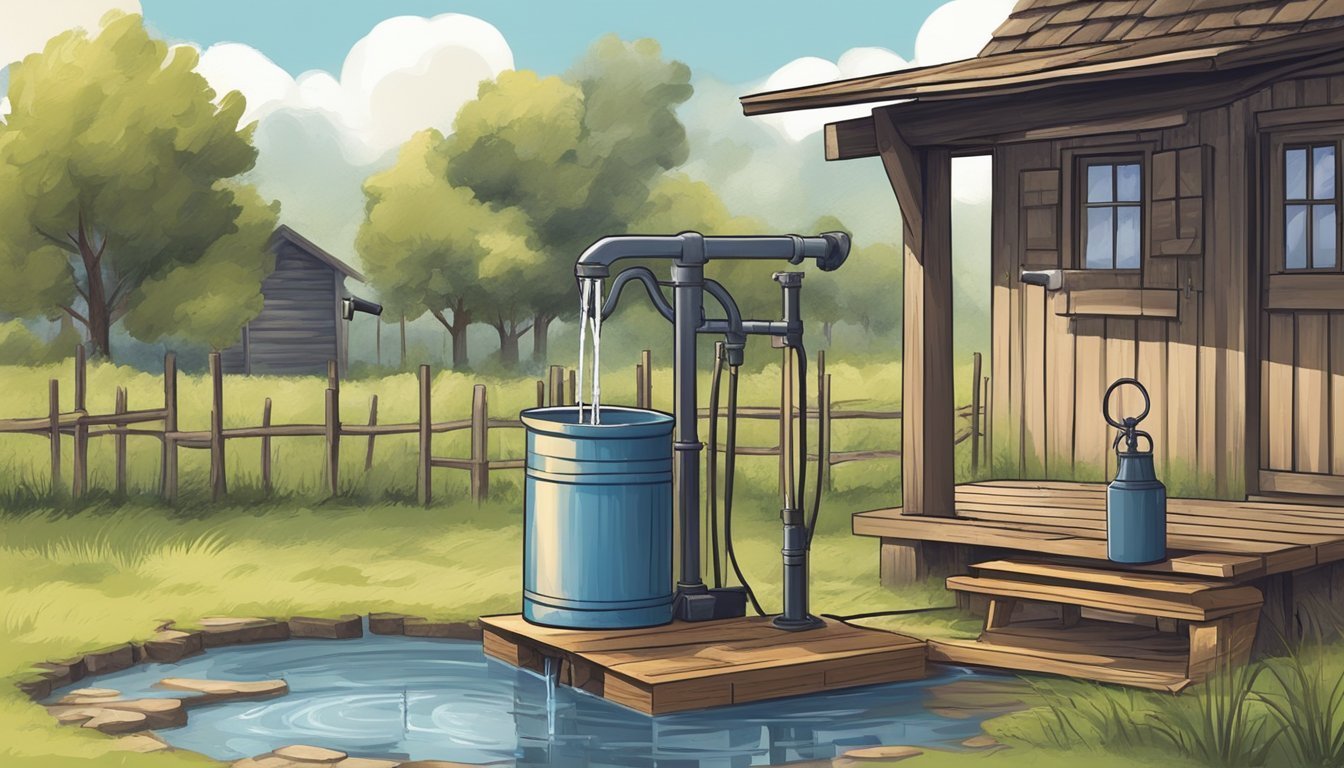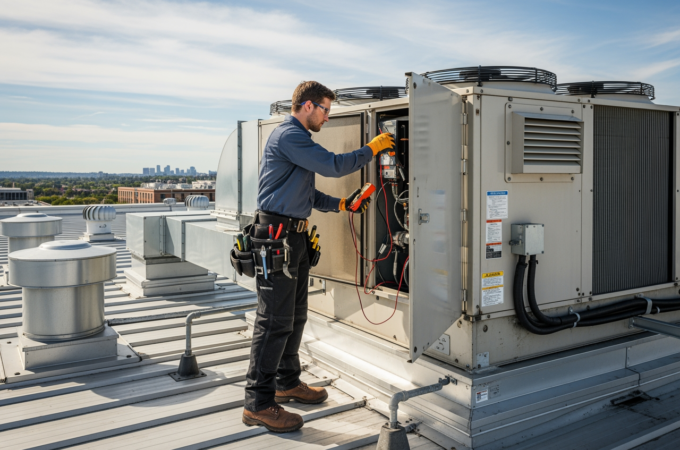
Well Water Systems for Sustainable Living
Table of Contents
ToggleKey Takeaways
- Well water systems offer independence from municipal supplies, promoting self-sufficiency.
- Proper maintenance ensures water quality and system longevity.
- Integrating modern technologies can enhance efficiency and sustainability.
Access to clean, reliable water remains one of the most essential foundations of sustainable living. For many rural homeowners, small communities, and environmentally conscious families, the decision to switch to a well water system represents more than just a simple choice—it becomes an active commitment to self-sufficiency and sustainability. By tapping into natural underground aquifers, well systems greatly reduce dependence on often overtaxed municipal water supplies while simultaneously introducing a level of resiliency necessary in today’s ever-changing climate. If you are considering this route, involving professionals such as Ohio well drilling experts assures a process that prioritizes both technical precision and environmental responsibility. With thoughtful management and a focus on best practices, well water systems can be an ideal cornerstone of an eco-friendly lifestyle. They also allow greater control over water quality, helping homeowners avoid concerns about chemical additives or treatment byproducts commonly found in public systems. In remote or developing areas, wells can mean the difference between water access and scarcity, empowering communities with a dependable, localized resource. Ultimately, investing in a well water system reflects a proactive stance on both environmental and personal well-being.
Benefits of Well Water Systems
Well water systems bring a host of advantages to homeowners and communities, especially those seeking ways to increase sustainability and resource independence:
- Independence: Private wells empower owners by offering an alternative to centralized city water systems and the vulnerabilities they can present, such as seasonal restrictions or infrastructure faults. In an emergency—like natural disasters—those with well systems are less likely to experience disruptions in their water supply, granting peace of mind and reliability that city water often cannot guarantee.
- Cost Savings: Although the initial investment for drilling and equipment may seem steep, well systems eliminate the recurring costs of municipal water bills. Over time, expenses are primarily limited to maintenance, annual testing, and the electricity required to power pumps, leading to substantial long-term savings. These benefits become more pronounced with careful planning and the use of energy-efficient technology.
- Environmental Impact: Drawing water directly from underground aquifers eliminates the need for energy-intensive large-scale treatment and transport processes associated with municipal systems. Because there is no need for mass chemical intervention or long-distance pipelines, the environmental footprint of a well water system is significantly smaller. This not only preserves resources but also reduces pollution and waste for a cleaner community and ecosystem.
Ensuring Water Quality
Water quality is a fundamental concern for anyone relying on a private well. Unlike those on city supplies, well owners are wholly responsible for testing and maintaining the safety of their water, making vigilance a vital part of long-term use. The Environmental Protection Agency (EPA) strongly recommends annual testing for several key factors, such as bacteria (especially coliform types), nitrates, pH levels, and the presence of heavy metals. While many contaminants are naturally occurring, agricultural runoff, nearby septic systems, and industrial activities can introduce new risks, making routine checks more important than ever.
Tailoring filtration and purification to local needs is essential for enhanced safety. Some homeowners opt to install point-of-entry or point-of-use solutions, such as carbon filters for removing organic material, reverse osmosis systems for purifying dissolved solids and salts, or ultraviolet light disinfectors for microbiological threats. By layering these defenses, households can create a robust barrier against contamination, ensuring that well water remains safe and healthy for drinking, cooking, and other uses year-round.
Integrating Sustainable Practices
Modern well water systems can be powerful vehicles for sustainable living when combined with advanced conservation techniques and technologies. Adopting cutting-edge solutions and traditional resource stewardship dramatically increases the efficiency and longevity of these systems, allowing homes and small communities to align more closely with environmental best practices:
- Rainwater Harvesting: Homeowners can significantly reduce the demand on their well by directing rainwater from roofs and hard surfaces into storage tanks, especially during wet months. This harvested water can serve practical, non-potable functions like watering gardens, washing vehicles, or even flushing toilets, conserving groundwater, and enhancing drought resilience.
- Water Recycling: Greywater systems that recycle gently used water from activities like laundry and bathing can dramatically reduce fresh water usage. Modern solutions allow residential properties to treat and reuse greywater for irrigation or toilet flushing, minimizing the strain on wells while maintaining healthy landscapes and efficient operations.
- Energy-Efficient Pumps: Traditional pumps can require considerable energy, but switching to variable-speed or solar-powered pumps can slash energy use and lower your carbon footprint. Solar technologies, in particular, offer an excellent pairing with well systems—especially in remote areas—by providing reliable power regardless of grid availability.
Innovative Technology for the Future
Rapid advancements in technology are reshaping well water management. The integration of smart sensors allows for real-time, remote monitoring of water level, pump status, pressure, and flow. Prompt alerts when issues arise make preventive maintenance straightforward and protect both your water resource and investment. When utilized alongside conservation and renewable energy strategies, these tools help ensure your well system remains effective, efficient, and sustainable for the long term.
Choosing the Right Well System for Your Property
Selecting the most suitable well system begins with understanding your location’s geological characteristics, water table depth, and projected water usage. Shallow wells may suffice for areas with abundant surface-level groundwater, but deeper, drilled wells are often necessary for consistent access and long-term reliability. A thorough site survey conducted by licensed professionals can help determine the ideal well type, placement, and depth, reducing the risk of future complications.
The type of pump—whether jet, submersible, or solar-powered—must align with your system’s design and energy efficiency goals. Additionally, integrating water storage tanks can offer extra flexibility, especially in areas prone to seasonal fluctuations or inconsistent rainfall. Consideration should also be given to zoning laws, property setbacks, and local permitting requirements to ensure full legal compliance. By customizing your setup to both environmental and lifestyle factors, you create a system that is not only effective and durable but also tailored to your unique needs.
Challenges and Considerations
While well water systems offer significant benefits, it’s important to acknowledge and plan for certain challenges that come with owning and operating a private well:
- Initial Costs: The expense of drilling a new well varies widely, influenced by factors such as required depth, the site’s geology, and system complexity. This upfront investment can pose a barrier, but it’s important to weigh it against decades of utility cost savings and the value of water independence.
- Maintenance: Ongoing maintenance is necessary to ensure both system performance and water quality. Routine inspections, testing for contaminants, and proactive repairs are critical to avoiding pump failures, contamination, and unexpected interruptions. Partnering with seasoned professionals can streamline upkeep and maximize the lifespan of your well, safeguarding health and investment.
- Water Availability: Groundwater is not an unlimited resource. In times of drought or in overdrawn aquifers, wells may run dry or experience diminished flow. Smart monitoring and resource management, such as using water-saving appliances and implementing rainwater capture systems, help reduce stress on the aquifer. Staying informed about local groundwater regulations and rights is also vital for long-term sustainability and compliance.
Case Study: Sustainable Well Practices
There are inspiring examples worldwide where sustainable well water practices are solving critical water scarcity issues. In Kenya, for instance, one rural village grappled for years with persistent droughts that jeopardized daily living and agricultural production. With the help of international partners and local expertise, the community drilled a deep aquifer well equipped with a solar-powered pump and advanced water filtration. This initiative not only provided reliable clean water for over 2,000 people, but it also slashed operational costs by over half and created opportunities for economic growth and greater local resilience. These solutions have become a model for responsible water stewardship, proving that the integration of renewable energy, robust infrastructure, and modern technology is possible anywhere. Community leaders now report improved school attendance, as children no longer have to walk miles for water each day. Thanks to a consistent irrigation source that supports year-round planting, agricultural yields have increased. This success story underscores how sustainable well systems can uplift entire communities by addressing basic needs and unlocking long-term development. Learn more about sustainable well drilling practices.
Conclusion
As global concerns over water shortages and environmental health intensify, private well water systems offer an increasingly attractive option for homeowners and communities wanting sustainable, independent access to fresh water. Strategic planning, disciplined maintenance, and innovative use of technology are the keys to long-term system success. Leveraging rainwater harvesting, water recycling, and renewable energy protects your investment and supports broader goals of resource conservation and ecological stewardship. For those motivated to integrate these systems or improve existing ones, working with experts ensures every stage is managed with expertise and respect for the environment, securing clean water for today and generations to come.





